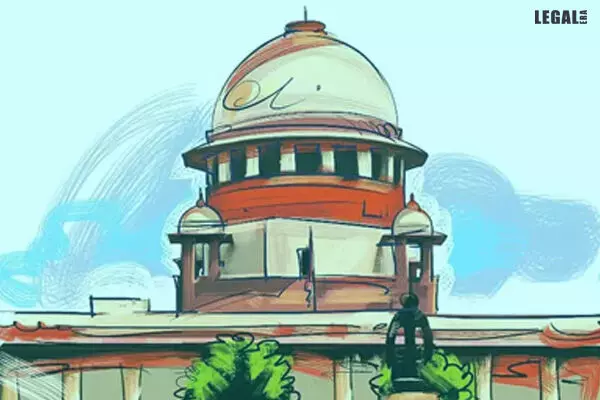- Home
- News
- Articles+
- Aerospace
- Artificial Intelligence
- Agriculture
- Alternate Dispute Resolution
- Arbitration & Mediation
- Banking and Finance
- Bankruptcy
- Book Review
- Bribery & Corruption
- Commercial Litigation
- Competition Law
- Conference Reports
- Consumer Products
- Contract
- Corporate Governance
- Corporate Law
- Covid-19
- Cryptocurrency
- Cybersecurity
- Data Protection
- Defence
- Digital Economy
- E-commerce
- Employment Law
- Energy and Natural Resources
- Entertainment and Sports Law
- Environmental Law
- Environmental, Social, and Governance
- Foreign Direct Investment
- Food and Beverage
- Gaming
- Health Care
- IBC Diaries
- In Focus
- Inclusion & Diversity
- Insurance Law
- Intellectual Property
- International Law
- IP & Tech Era
- Know the Law
- Labour Laws
- Law & Policy and Regulation
- Litigation
- Litigation Funding
- Manufacturing
- Mergers & Acquisitions
- NFTs
- Privacy
- Private Equity
- Project Finance
- Real Estate
- Risk and Compliance
- Student Corner
- Take On Board
- Tax
- Technology Media and Telecom
- Tributes
- Viewpoint
- Zoom In
- Law Firms
- In-House
- Rankings
- E-Magazine
- Legal Era TV
- Events
- Middle East
- Africa
- News
- Articles
- Aerospace
- Artificial Intelligence
- Agriculture
- Alternate Dispute Resolution
- Arbitration & Mediation
- Banking and Finance
- Bankruptcy
- Book Review
- Bribery & Corruption
- Commercial Litigation
- Competition Law
- Conference Reports
- Consumer Products
- Contract
- Corporate Governance
- Corporate Law
- Covid-19
- Cryptocurrency
- Cybersecurity
- Data Protection
- Defence
- Digital Economy
- E-commerce
- Employment Law
- Energy and Natural Resources
- Entertainment and Sports Law
- Environmental Law
- Environmental, Social, and Governance
- Foreign Direct Investment
- Food and Beverage
- Gaming
- Health Care
- IBC Diaries
- In Focus
- Inclusion & Diversity
- Insurance Law
- Intellectual Property
- International Law
- IP & Tech Era
- Know the Law
- Labour Laws
- Law & Policy and Regulation
- Litigation
- Litigation Funding
- Manufacturing
- Mergers & Acquisitions
- NFTs
- Privacy
- Private Equity
- Project Finance
- Real Estate
- Risk and Compliance
- Student Corner
- Take On Board
- Tax
- Technology Media and Telecom
- Tributes
- Viewpoint
- Zoom In
- Law Firms
- In-House
- Rankings
- E-Magazine
- Legal Era TV
- Events
- Middle East
- Africa
Supreme Court Relegates Revenue to File Appropriate Review Plea Seeking Waiver of Limitation under Section 150(2) of Income Tax Act

Supreme Court Relegates Revenue to File Appropriate Review Plea Seeking Waiver of Limitation under Section 150(2) of Income Tax Act
The Supreme Court while dealing with a miscellaneous application filed by the Principal Commissioner of Income Tax has relegated the Revenue to file an appropriate review application seeking relief with regard to the waiver of limitation under Section 150(2) of the Income Tax Act, 1961.
The two judges bench of Justices M.R. Shah and Sudhanshu Dhulia observed, “…without further entering into the merits of the application and/or expressing anything on merits on the prayers sought in the present application, the present application is not entertained and we relegate the Revenue to file an appropriate review application seeking the reliefs which are sought in the present application and as and when such review application is filed the same be heard and decided and disposed of in the open court.”
The Revenue in its application pleaded before the Supreme Court to clarify that the waiver of limitation as stipulated in Section 150(2) is to be read in respect of the date of issue of notice for reassessment under Section 148 i.e., if as on the date the assessment under Section 153A or Section 153C was passed, a notice under Section 148 could have been issued as per the law then in force, then fresh proceedings for reassessment of such income not arising from the incriminating material found in search could be initiated pursuant to the findings of the Supreme Court in Principal Commissioner of Income Tax, Central-3 v. Abhisar Buildwell P. Ltd.
Further it sought clarification, that the Assessing Officer, may if found necessary initiate fresh proceedings within 60 days from date of disposal of this application following the procedure stipulated in Section 147-151 of the Act as is in force now.
The Court after going through the averments made in the application and prayers was of the opinion that the prayers sought could be said to be in the form of review which requires detail consideration at length looking into the importance of the matter.
Therefore, the Court refused to entertain the present application in the form of clarification and relegated the Revenue to file an appropriate review application, so that the review application could be decided and disposed of in accordance with law and on its own merits.



